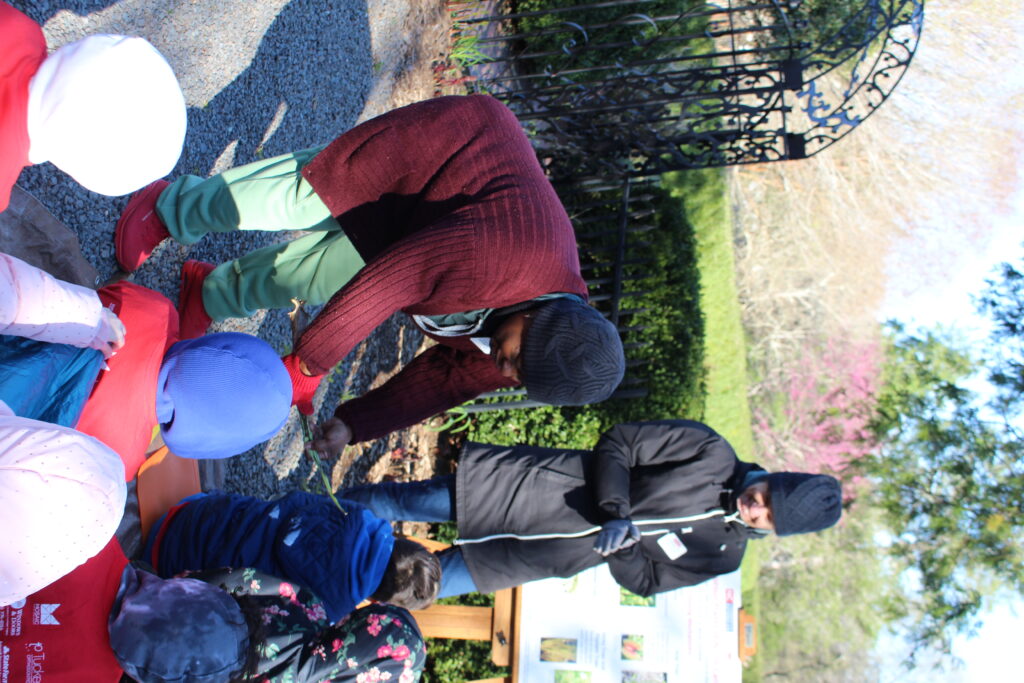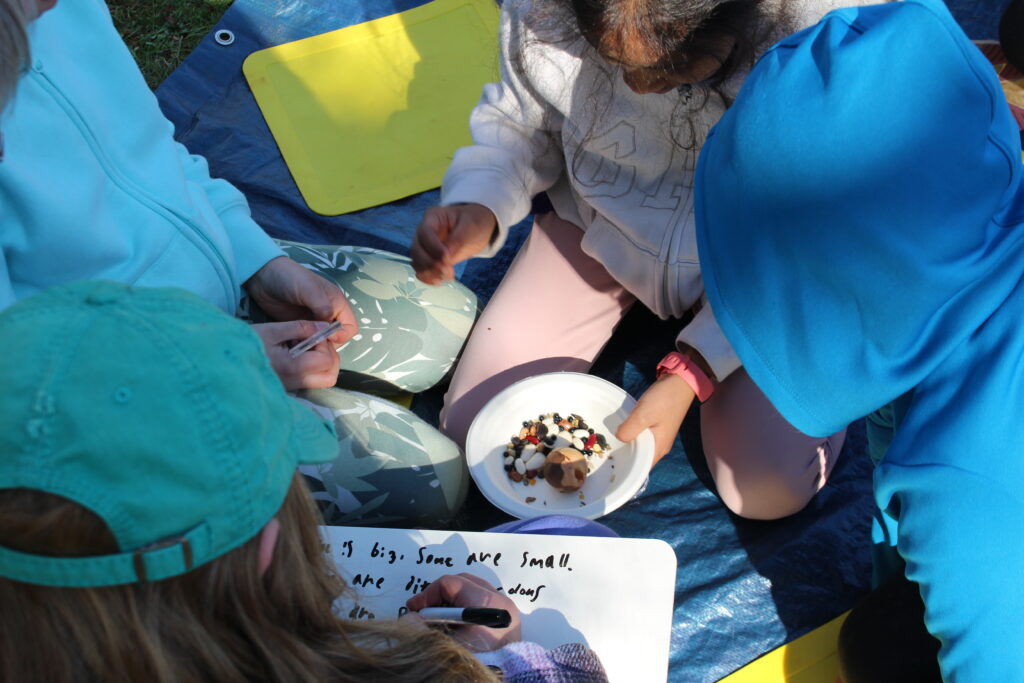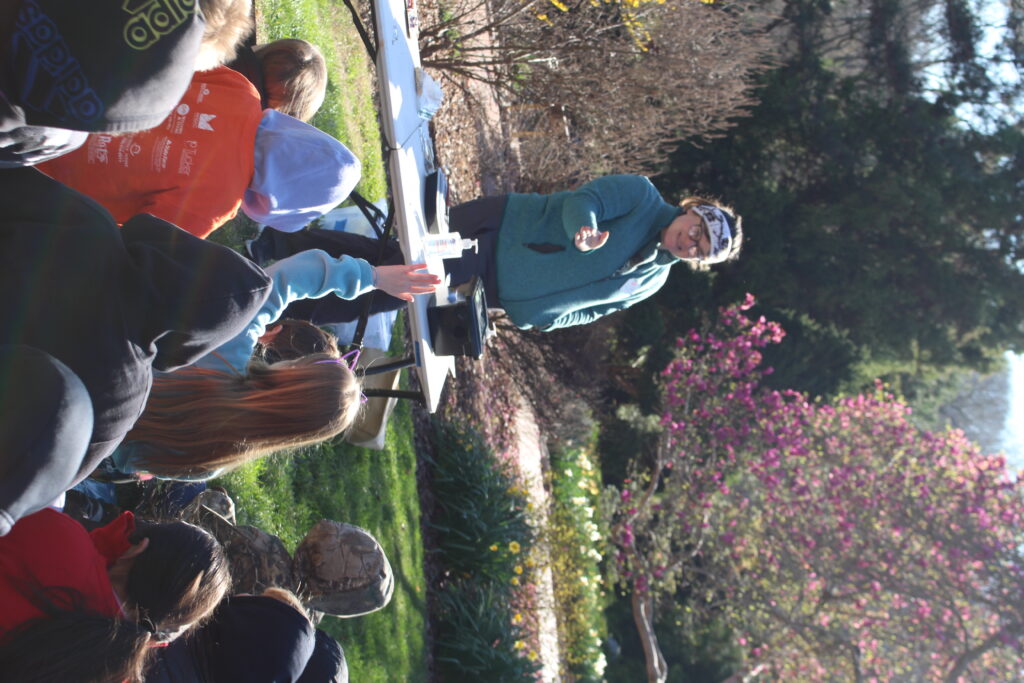Youth Education at the Arboretum Reinforces Science Standards
go.ncsu.edu/readext?1045364
en Español / em Português
El inglés es el idioma de control de esta página. En la medida en que haya algún conflicto entre la traducción al inglés y la traducción, el inglés prevalece.
Al hacer clic en el enlace de traducción se activa un servicio de traducción gratuito para convertir la página al español. Al igual que con cualquier traducción por Internet, la conversión no es sensible al contexto y puede que no traduzca el texto en su significado original. NC State Extension no garantiza la exactitud del texto traducido. Por favor, tenga en cuenta que algunas aplicaciones y/o servicios pueden no funcionar como se espera cuando se traducen.
Português
Inglês é o idioma de controle desta página. Na medida que haja algum conflito entre o texto original em Inglês e a tradução, o Inglês prevalece.
Ao clicar no link de tradução, um serviço gratuito de tradução será ativado para converter a página para o Português. Como em qualquer tradução pela internet, a conversão não é sensivel ao contexto e pode não ocorrer a tradução para o significado orginal. O serviço de Extensão da Carolina do Norte (NC State Extension) não garante a exatidão do texto traduzido. Por favor, observe que algumas funções ou serviços podem não funcionar como esperado após a tradução.
English
English is the controlling language of this page. To the extent there is any conflict between the English text and the translation, English controls.
Clicking on the translation link activates a free translation service to convert the page to Spanish. As with any Internet translation, the conversion is not context-sensitive and may not translate the text to its original meaning. NC State Extension does not guarantee the accuracy of the translated text. Please note that some applications and/or services may not function as expected when translated.
Collapse ▲According to the NC Department of Public Instruction, in the 2022-23 school year, 38% of Forsyth County students were not proficient in science, exceeding the state average of 32%. Field trips are a useful supplement to classroom instruction. Experiential learning while on a field trip is linked to improved student performance in the plant sciences (Bauerle and Park 2012). NC essential science standards for third graders include plant science topics, which can be reinforced through activities in a garden.
N.C. Cooperative Extension, Forsyth County Center, offered its Youth Education Program for third grade students in March 2024. Over four days, 674 third grade students attended the program at the Arboretum at Tanglewood Park. Students participated in experiential lessons about composting, soil, seeds, and carnivorous plants. Extension staff and Master Gardener volunteers taught each lesson which addressed third grade science standards. 65 volunteers and staff members contributed a total of 576 hours of their time. Horticulture Agent Leslie Rose also provided a website containing supplemental information and activities related to concepts covered during the program, so that teachers could reinforce these concepts in the classroom. (View the supplemental information here.) While visiting the Arboretum, students were asked quiz questions to test their science knowledge. Teachers also responded to a follow-up evaluation to gather more information on students retention of knowledge and specific successes.
Through their participation in Youth Education, students gained knowledge of plants and gained critical thinking skills while investigating soil, seeds, and observing adaptations of carnivorous plants. Students also enjoyed time outdoors. One teacher commented, “the students LOVED working with worms. Some of these kids never get to explore nature like this.” After participating, 77% of the students responded correctly to questions demonstrating their knowledge of plant science. All teachers agreed that the lessons helped them meet NC Essential Science standards. Ten of the teachers spent time in the classroom using the supplemental materials provided on the website, spending a total of 25 hours with their students reviewing the information. A teacher said that her students “were always excited when the vocabulary we had studied (like germination) was used in a station… It was fun to see them connect our class learning to real life.”

A volunteer teaches students about carnivorous plants during Youth Education at the Arboretum at Tanglewood Park
We look forward to offering this program for more third graders in 2025!






